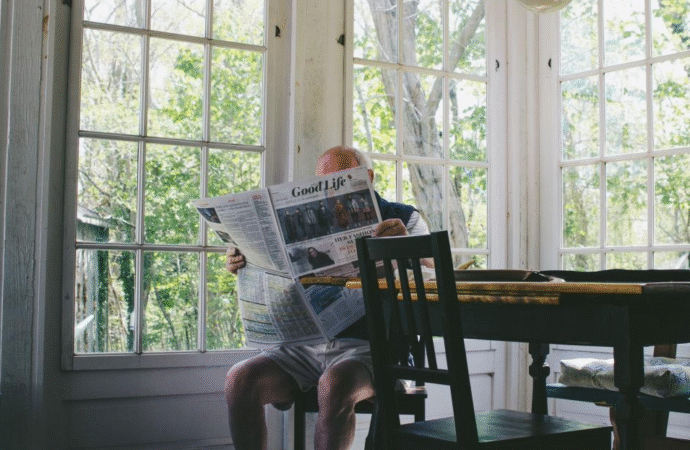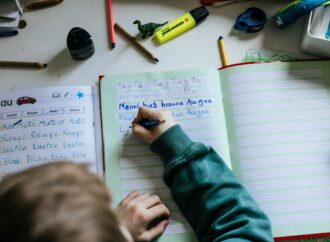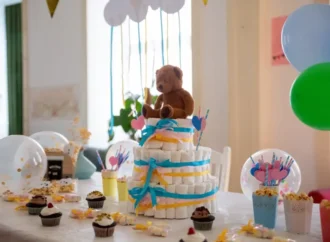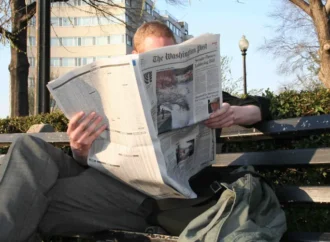Fragmented. Distracted.
So often, that’s our experience of the internet. Whenever I launch a browser, I am assaulted by an overwhelming mudslide of information, headlines, graphics, photos and videos splashing and splurging across the page, each vying for my attention. Clicking over to social media, I’m inundated with a new firehose of topics, tags, talking heads, and Tweets – many of them bitter, angry, or calculated to instill some form of panic, and all written in short, shallow spurts that stymie deep thought and meaningful dialogue.
Only a few minutes into my internet usage, I’ve been exposed to hundreds, perhaps thousands, of distinct ideas and images, flashing before my eyes in mesmerizing and stupefying glow. My mind is diffracted, torn, disorganized. Twenty minutes later, I come to myself after spiraling down a YouTube vortex of people pretending to construct complex swimming pools in dense jungles. How did I get here? What was I supposed to be doing? Ah yes, writing. I settle down to compose, but in a moment of mental block, I take a “break” by checking my email – which is like dynamite blowing up the tracks of my previous train of thought. The human mind is not designed to handle so much information so quickly.
In their classic work “How to Read a Book,” Mortimer J. Adler and Charles Van Doren wrote:
We do not have to know everything about something in order to understand it; too many facts are often as much of an obstacle to understanding as too few. There is a sense in which we moderns are inundated with facts to the detriment of understanding.
It may be seriously questioned whether the advent of modern communications media has really enhanced our understanding of the world in which we live.
Often, to understand a subject more deeply, we need to slow the pace of our thinking. We need to mull, consider and linger. Human wisdom is born of the patient process of contemplation, not the accumulation of “facts” at a rate faster than a machine gun can shoot.
Of course, for most of us, cutting out internet usage entirely is out of the question. But we can place certain limits on it, finding alternative sources of information. There’s another way to think and read, counter to the digital world. It’s called print.
Reading print materials – whether books, magazines, newspapers or journals – is a fundamentally different way to consume information compared to digital media. It makes you think differently, more slowly and methodically. It lowers blood pressure, as it isn’t interactive and can’t bombard you with updates and notifications. There’s also something about holding a physical book in your hands, feeling the texture of its spine and pages, smelling the sweet smell of paper, that grounds and calms you.
Research shows that people engage differently with text on a page as opposed to text on a screen. Reading print significantly improves comprehension – up to eight times more than digital reading – according to researchers at the University of Valencia. “The association between frequency of digital reading for leisure and text comprehension abilities is close to 0,” one of the study’s co-authors, Professor Ladislao Salmerón says.
Why? Salmerón theorizes that “linguistic quality of digital texts tends to be lower than that traditionally found in printed texts,” and that people have a different mindset when consuming digital texts, which often contain less depth than their print counterparts. The reader “doesn’t fully get immersed in the narration, or doesn’t fully capture the complex relations in an informative text.”
Considering this, I’ve recently begun an experiment to try to recover a better way of thinking and reading. I am attempting (more or less successfully) to use the internet only for necessary activities. To replace all the web surfing I used to do, I’ve subscribed to a handful of quality print publications and turned my attention to eating through my massive collection of great books.
Already, I’ve noticed a change. The pace of life feels slower. I’m less stressed because I don’t read all the headlines predicting this or that encroaching disaster. I accomplish my work more quickly, have more free time, and I can concentrate for longer periods of time. I find myself looking forward to the evening hours when I settle on the couch with my stack of books and magazines. And, for the most part, the articles and chapters I’m reading are of a much higher literary and scholarly quality than most of what I’ve encountered online. It’s hard to see a downside.
Let me be clear: there’s a wealth of wonderful content accessible on the internet – like the website you’re currently reading – but, at the same time, most of us could benefit from a little less surfing of the unpredictable internet tides, and a little more time with a book in hand.
—
The republication of this article is made possible by The Fred & Rheta Skelton Center for Cultural Renewal.
Image Credit: Freerange Stock
27 comments















27 Comments
CynthiaADavis
July 22, 2025, 3:34 amI get paid more than $120 to $130 per hour for working online. I heard about this job 3 months ago and after joining this i have earned easily $15k from this without having online working skills.
This is what I do……. Www.Works6.Com
REPLYNorrisAHolmes@CynthiaADavis
July 22, 2025, 5:11 amGoogle pay 500$ per hour my last pay check was $19840 working 10 hours a week online. My younger brother friend has been averaging 22k for months now and he works about 24 hours a week.
REPLYJust Open This Website…….. http://www.get.money63.com
KarenB@NorrisAHolmes
July 23, 2025, 11:39 amEverybody can earn 220$/h + daily 1K… You can earn from 6000-12000 a month or even more if you work as a part time Work…It’s easy, just follow instructions on this page, read it carefully from start to finish… It’s a flexible job but a good eaning opportunity..go to this site home tab for more detail thank you…….
REPLY.
Reading This Article:———- http://Www.Cash43.Com
LethaCReilly@CynthiaADavis
July 22, 2025, 6:15 amI get paid more than $100 to $500 per hour for working online. I heard about this job 3 months ago and after joining this I have earned easily $20k from this without having online working skills . Simply give it a shot on the accompanying site…
REPLYHere is I started.…………>> https://Www.joinSalary.Com
Strasser@CynthiaADavis
July 22, 2025, 7:56 amI get paid over $130 1 to 3 hours working from home with 2 kids at home. I never thought I'd be able to do it but my best friend earns over $27k a month doing this and she convinced me to try. The potential with this is endless.
REPLYHeress———–> http://www.best.work43.com
RuthsGroger@CynthiaADavis
July 23, 2025, 1:38 amHow many Time You lost This Droid risk… in case you wana get a reasonable income via pc and when you have a dependable internet connection then you in reality ought with a view to recognize how you’re making your earnings through pc.
Work At Home For USA My buddy’s aunt makes $164/hr on the computer. She has been unemployed for eight months but last month her but pay check was $25,000 just working on the computer for a few hours.
This Website Open Here—————————>>> http://www.get.money63.com
REPLYilliana
July 22, 2025, 3:38 amI get paid more than $120 to $130 per hour for working online. I heard about this job 3 months ago and after joining this i have earned easily $15k from this without having online working skills.
This is what I do……………Www.join.work43.com
REPLYilliana@illiana
July 22, 2025, 12:40 pmI get paid more than $120 to $130 per hour for working online. I heard about this job 3 months ago and after joining this i have earned easily $15k from this without having online working skills.
This is what I do…………… http://Www.join.work43.com
REPLYSusan Bickford
July 22, 2025, 3:41 amIt's A Great News to Celebrate with you Viewer, I am truly living the life I have been looking for after Dr Kachi made me win my Powerball Lottery, I had been playing for a good 8years. It was a friend of mine who directed me to Dr Kachi because my friend Nancy has won the Powerball so many times and I don't know how she got the match six numbers to play and win a very big amount of money, then the last time she won the Mega Millions I told her to tell me the secret on how she win. That's when she started telling me about the powerful Dr Kachi who has been her helper. and she gave me Dr Kachi Text/Call Number:+1 (209) 893-8075 I texted the greatest spell caster Dr Kachi and I told him I wanted to win my Powerball with his spiritual rightful number and he told me I should give him 2hours to get everything done and hopefully Dr Kachi do it, and give me a winning numbers to play my ticket that make me win the prize of $223.3 Million Dollars Powerball lottery Tuesday i bought the winning ticket at the Carlie C’s IGA store in Hope Mills, that changed my life for good today, and Dr Kachi a strong spell caster and trust him when he says the results will manifest it's Truth, God bless you Dr kachi for your kind help also can Email: [email protected] or website: https://drkachispellcaster.wixsite.com/my-site
REPLYAminawajid
July 22, 2025, 4:34 amI get paid over $130 1 to 3 hours working from home with 2 kids at home. I never thought I'd be able to do it but my best friend earns over $27k a month doing this and she convinced me to try. The potential with this is endless.
REPLYHeress———–> http://www.now.jobs67.com
Repavotdilit
July 22, 2025, 5:11 amGoogle pay 500$ per hour my last pay check was $19840 working 10 hours a week online. My younger brother friend has been averaging 22k for months now and he works about 24 hours a week.
REPLYJust Open This Website…….. http://www.get.money63.com